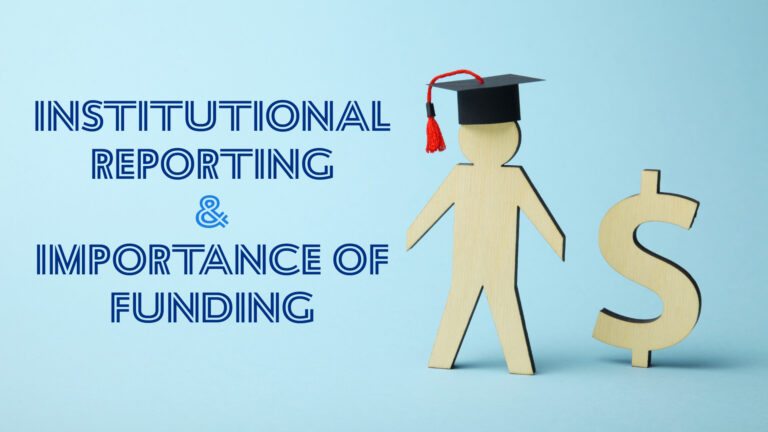
Navigating Success: The Vital Link Between Funding and Reporting
In the realm of higher education, the pursuit of knowledge is inextricably linked with resources – and those resources are often heavily influenced by funding. Institutions rely on funding to provide quality education, cutting-edge research, and a conducive learning environment. However, securing funding is not just about asking for financial support; it’s about showcasing the institution’s achievements and progress. This is where accurate reporting practices come into play, as they play a pivotal role in demonstrating an institution’s impact and, consequently, influencing its funding.
Understanding the Importance of Accurate Reporting:
Accurate reporting practices encompass the collection, analysis, and presentation of data that reflect an institution’s achievements, goals, and challenges. From enrollment numbers to research outcomes, from graduation rates to community engagement initiatives, these reports offer a comprehensive view of the institution’s contributions to its students and society as a whole.
The Funding-Reporting Nexus:
- Informed Decision-Making: Accurate reporting practices provide administrators, governing bodies, and stakeholders with a clear understanding of an institution’s performance. These insights empower decision-makers to allocate funds strategically, ensuring that resources are directed where they can have the most significant impact.
- Transparency and Accountability: Effective reporting practices enhance institutional transparency and accountability. By openly showcasing achievements and challenges, institutions can build trust with donors, students, and the broader community. This transparency fosters a sense of accountability to use funds responsibly and efficiently.
- Attracting Funding Opportunities: Accurate reporting serves as a powerful tool for attracting external funding. Foundations, government agencies, and private donors are more likely to invest in institutions that can demonstrate a track record of positive outcomes and effective resource utilization. Reports showcasing successful programs and initiatives can inspire funders to support future endeavors.
- Optimizing Resource Allocation: Institutions often operate with limited resources. Accurate reporting enables them to identify areas of strength and areas that need improvement. By focusing on these insights, institutions can allocate resources to programs that align with their mission and yield the greatest returns.
Impact on Institutional Growth:
- Enhanced Reputation: Accurate reporting practices contribute to an institution’s reputation by showcasing its commitment to transparency, progress, and continuous improvement. A strong reputation can attract more students, faculty, and research partners, ultimately influencing funding opportunities.
- Strategic Planning: Accurate reports provide a solid foundation for strategic planning. Institutions can identify emerging trends, assess the effectiveness of current initiatives, and develop strategies to address challenges. This proactive approach positions the institution for long-term growth and success.
- Student Success: Accurate reporting practices enable institutions to track student outcomes and identify factors that contribute to success or hinder progress. This data-driven approach allows institutions to implement targeted interventions and support systems, improving student retention and graduation rates. Innovation and Research: Accurate reporting not only highlights research achievements but also informs future research directions. By analyzing data related to research outcomes, institutions can identify areas of strength and allocate resources to fuel innovation and discovery.
Conclusion: Ultimate Consulting understands the connection between higher education funding and accurate reporting practices is a symbiotic relationship that shapes the trajectory of institutions. Accurate reporting ensures that the impact of an institution’s efforts is transparently communicated to stakeholders, thus influencing funding decisions. In turn, funding enables institutions to further their mission, support students, engage in research, and contribute to societal progress. By prioritizing accurate reporting practices, higher education institutions can enhance their reputation, optimize resource allocation, and ensure that they are making a lasting and positive impact on their students and communities. Partner with Ultimate Consulting to improve your institution’s reporting practices and ensure you have the right data at the right time to meet your goals.
